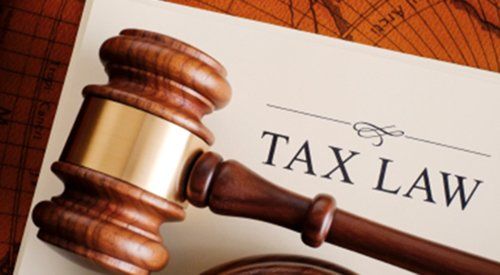IRS Practice and Procedure News Briefs for June 2021

REPORTING INCOME BELOW 1099 REPORTING THRESHOLD – Legoski v. Commissioner, T.C. Summ. Op. 2021-15, (2021)
Why this Case is Important: Many people mistakenly believe that when they sell items through an online platform, such as through Amazon or eBay, as long as their sales are below the platform’s Form 1099 reporting threshold, their sales are not taxable and do not have to be reported to the IRS. As the Court makes clear in this case, that belief is wrong.
Facts: In Legoski, the taxpayer sold over $29,000 of items through Amazon in 2017 using a drop-shipping model – he purchased items online, sold them on Amazon, and arranged for them to be shipped from the original seller to his buyer. Payments to him were made through Amazon, which would deduct a processing fee and remit the net payment to him. At the end of 2017, Amazon sent him a Form 1099-K reporting the total payments he received. Despite receiving the Form 1099-K, the taxpayer believed that the income he received through Amazon was below the Form 1099 reporting threshold, meaning that Amazon was not legally required to send him a Form 1099-K and that he was not required to report or pay taxes on the income. The IRS examined the return and adjusted it to include the unreported income, resulting in a tax deficiency of $9,251 and a penalty assessment of $1,850. The taxpayer filed a Tax Court petition contesting those assessments.
Law and Conclusion: Section 61(a) of the Internal Revenue Code provides that gross (taxable) income includes “all income from whatever source derived.” The Court stated that payments that are “undeniable accessions to wealth, clearly realized, and over which the taxpayers have complete dominion” are taxable as income unless an exclusion applies. The taxpayer maintained that, because he believed his Amazon income was below the threshold at which Amazon was required to issue him a Form 1099-K, he was correct in not reporting it on his tax return. However, as the Court made clear, regardless of whether Amazon was required to issue a Form 1099-K, the income the taxpayer received from Amazon was taxable – even if he didn’t receive a 1099, he still needed to report and pay tax on the payments. The Court found in favor of the IRS and upheld the tax and penalty assessments.
TAXATION OF SETTLEMENT PAYMENTS – Holliday v. Commissioner, T.C. Memo 2021-69 (2021)
Why this Case is Important: When people settle lawsuits and receive settlement payments, they are often confused as to whether the payments are taxable and make the mistake of not reporting or paying taxes on the payments. This case is an example of someone who made that mistake.
Facts: In Holliday, the taxpayer and her ex-husband attempted to resolve their divorce in mediation, which resulted in a mediated settlement agreement. The taxpayer, through her attorney, objected to the agreement, but the Court did not sustain her objections. Her attorney then filed a motion for a new trial contending that the settlement agreement resulted in her receiving significantly less than she was legally entitled to, but that motion was denied. In 2013, the taxpayer filed a malpractice lawsuit against her attorney alleging that his failure to properly represent her led to her receiving an inadequate settlement. The parties resolved the matter in 2014, with the attorney agreeing to pay $101,500 ($175,000 less the legal fees due to the attorney of $73,500) to the taxpayer in exchange for her releasing any claims she had against the attorney. The attorney made the payment to the taxpayer and issued her a Form 1099 for $101,500. The taxpayer did not include the $101,500 in her taxable income on her 2014 tax return. The IRS examined the return and determined that the gross settlement payment of $175,000 was taxable. It issued her a notice of deficiency proposing to assess a tax of $44,939 and penalties of $8,988. The taxpayer filed a Tax Court petition contesting the notice.
Law and Analysis: The Court began its analysis by referring to the general rule of Section 61(a) of the Internal Revenue Code, that gross (taxable) income includes “all income from whatever source derived” unless an exclusion applies. It then stated that settlement payments generally are taxable, except where they constitute a recovery of capital, as opposed to a recovery of lost income, in which case they are not taxable. Whether a settlement payment represents a recovery of capital depends on the nature of the claims that were the basis for the settlement. The Court first will look to the language of the settlement agreement itself, and if that is not helpful, to the other facts and circumstances of the settlement. The taxpayer argued that the settlement payment represented her recovery of lost capital because it represented what she should have received in her divorce as her share of the marital estate. According to the Court, however, the settlement agreement made clear that the settlement proceeds were paid to the taxpayer in exchange for the release of her malpractice claims against the attorney, and generally to compensate her for her attorney's malpractice. Because this did not constitute a recovery of capital, the Court held that the gross payment to the taxpayer of $175,000 (not just the net payment of $105,000) was taxable and found in favor of the IRS.
If you would like more details about these cases, please contact me at 312-888-4113 or jnesser@lavellelaw.com.
More News & Resources
Lavelle Law News and Events











